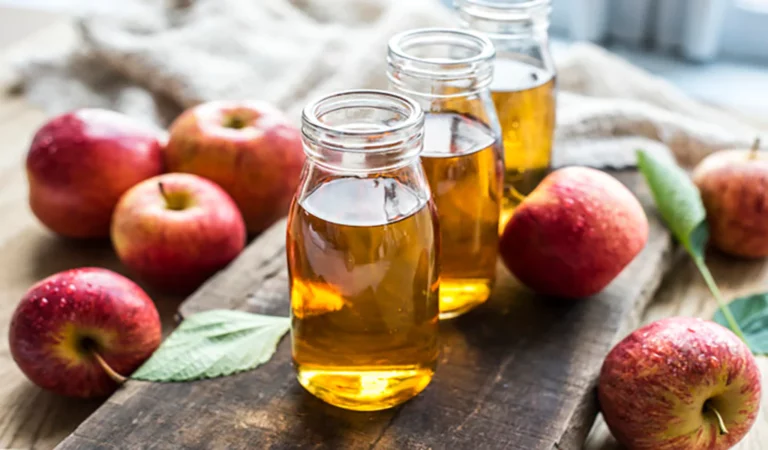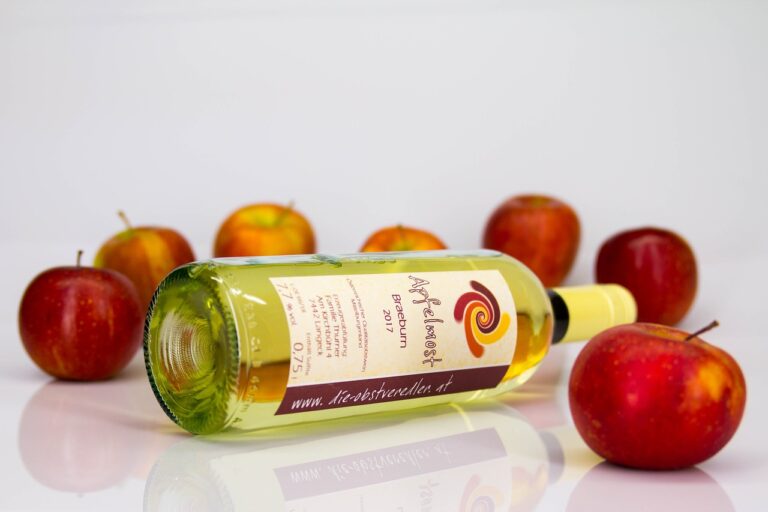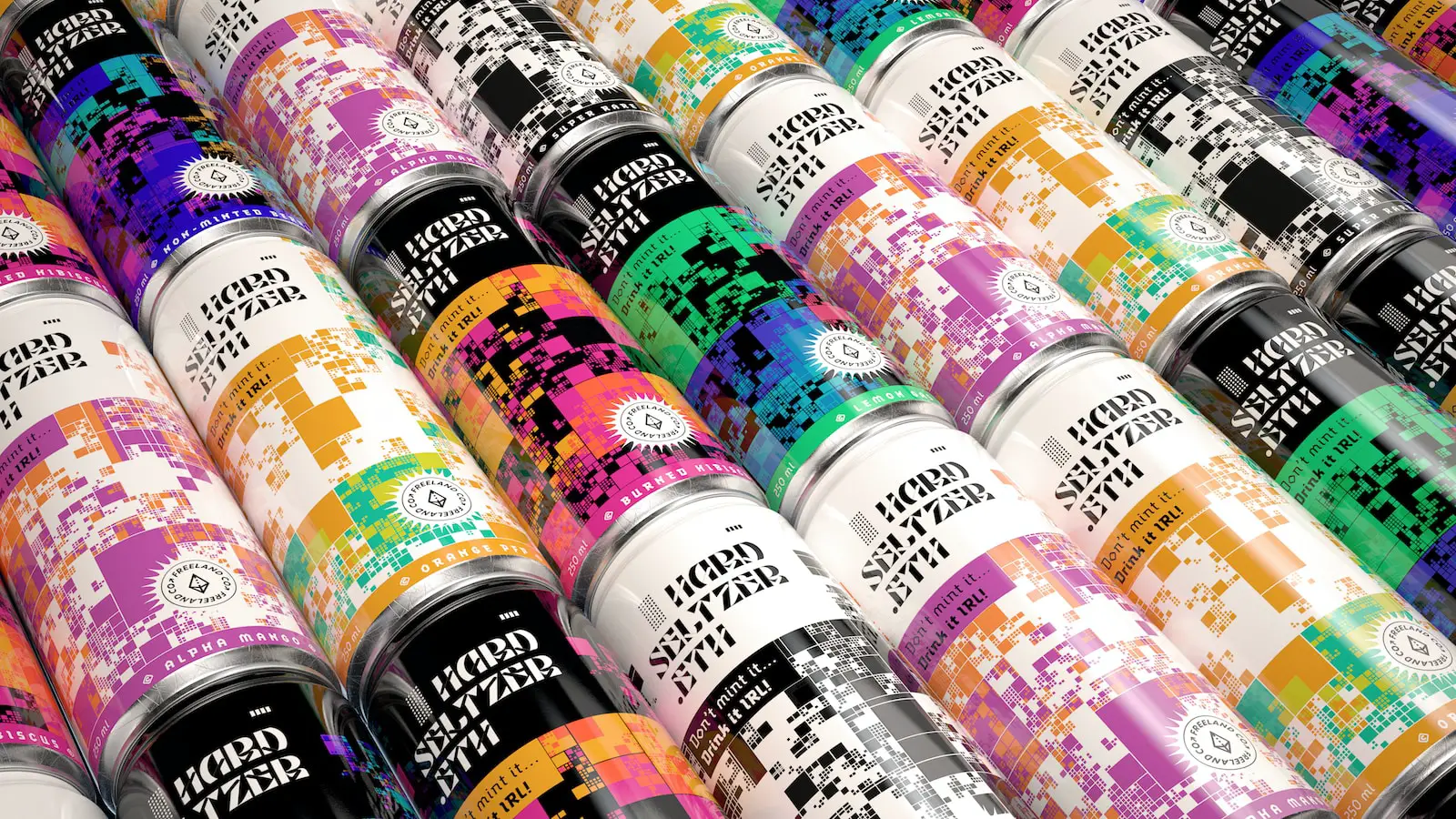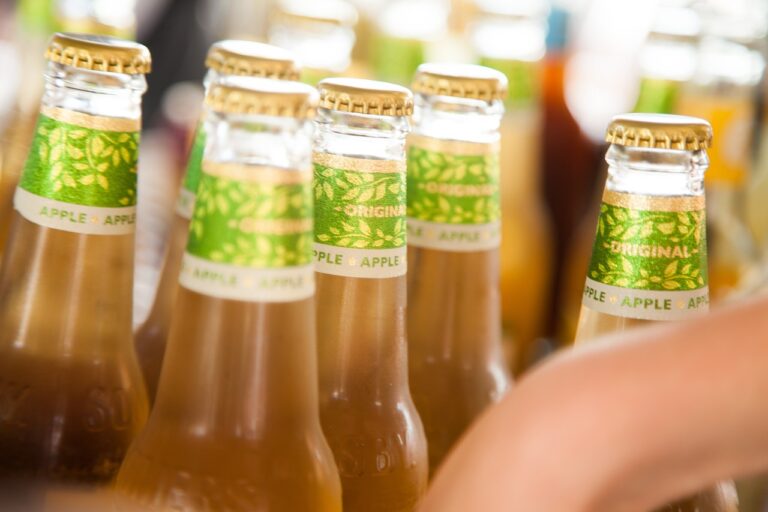Homemade cider is a popular beverage choice for many people, especially during the fall months when apples are abundant.
And while store-bought cider is readily available, some may opt to make their own at home for a more authentic and personal touch.
Even so, you must know the potential risks associated with homemade cider. Specifically, improperly made cider poses toxicity risks.
In other words, can homemade cider be toxic? So, let’s see what the problem is and how you can stay safe while enjoying the season’s favorite beverage.
Can Homemade Cider Be Toxic?
Yes, of course. If not made properly, it can contain harmful bacteria like E. coli and Salmonella, which can cause serious illness or even death.
Let’s not even mention the risk of bacterial contamination if you’re using unpasteurized apples or not fermenting them correctly.
Also, don’t forget that some apples contain toxins like cyanide that can be dangerous if consumed in large quantities.
Hence, if you want to enjoy your homemade cider without risking your health, make sure you take the necessary precautions.
Is It Safe To Drink Homemade Cider?
You can drink homemade cider if you follow the sanitation rules and prepare it with caution. The safety of cider relies on its acidity and refrigeration, as well as sanitation in the process.
You should also pasteurize cider to get rid of harmful bacteria. Aside from that, according to reports, in the past decade in North America, over 1,700 people have fallen ill after drinking unpasteurized juice and cider.
These outbreaks were mostly caused by unpasteurized juices and ciders, such as apple cider, orange juice, and lemonade.
Because of this, the best thing to do is to boil any cider before drinking it if you’re unsure of its safety. Make sure you stir it while it’s boiling so it heats evenly.
How Can You Tell If Homemade Cider Is Bad?
The best way to tell if homemade cider is bad is to look for any signs of mold or visible spoilage, such as a cloudy appearance or strange odor.
In addition, if the cider tastes sour, has a vinegar-like smell, or causes any discomfort or illness after consumption, you better throw it away.
To avoid any health risks, ensure you thoroughly sanitize all equipment and use only fresh, high-quality ingredients when making homemade cider.
Can Homemade Cider Contain Methanol?
Yes, homemade cider can contain methanol. You see, methanol is a toxic alcohol that can be produced during the fermentation process of fruits and grains (which, by the way, is what cider is made of).
Now, normally the amount of methanol produced during fermentation isn’t really enough to be a problem, but if the cider is made improperly (like, say, if the fruits used to make the cider were sprayed with pesticides or something), then there’s a risk that the methanol levels could be higher than normal.
Oh, and by the way, if you’re wondering how to test if there’s methanol in your homemade cider, apparently, you can use a sodium dichromate solution mixed with sulfuric acid (which, let’s be real, sounds like some mad scientist stuff).
Is Fermented Apple Cider Safe To Drink?
As stated by UpThirst, fermented cider made from fermented apples is safe to consume.
Some types of fermented cider, like hard cider, can contain higher levels of alcohol than unfermented cider.
Compared to hard liquor, fermented cider tends to be much lower in alcohol. Thus, it is safe to consume in moderation.
How Long Does Apple Cider Last In The Fridge?
In short, apple cider typically lasts up to two weeks in the refrigerator. After that, it may start to turn bad and lose its quality, taste, and flavor.
Because of that, you should consume it within that timeframe to ensure its freshness and safety.
And, if you are unsure about whether the apple cider has gone bad or not, you can check for mold or a sour smell. The moment you notice any of these, it’s best to throw it out.
But, in case you prefer, you can freeze apple cider to make it last longer, up to 8 to 10 months, without compromising its quality and safety, if stored under 0 Fahrenheit.
Then, when you want to use frozen apple cider, warm it up in the microwave or place it in the refrigerator.
Can Old Apple Cider Make You Sick?
Perhaps you’re wondering, “What happens if I drink old apple cider?” Sadly, in this case, doing so could result in some serious gastrointestinal discomfort.
But wait, there’s more! Not only that, but drinking unpasteurized apple cider can lead to contamination and illness. So, if your goal is to stay healthy and happy, it’s best to avoid that stuff altogether.
What To Do With Expired Apple Cider
If apple cider has expired, it is best to dispose of it. So, as we mentioned previously, Apple cider that has been continuously refrigerated lasts two weeks after opening.
To further extend the shelf life of opened apple cider, it can be frozen: store it in an airtight container and leave at least 1/2-inch headspace at the top, as apple cider will expand when frozen.
However, if it has already expired, the quality and taste of the cider have likely deteriorated, and it should not be consumed.
Final Words
As a final note, even though homemade cider makes a delicious and enjoyable treat, but one needs to be aware of its potential risks. Without proper preparation, homemade cider is susceptible to harmful bacteria, resulting in serious illness.
By taking the necessary precautions, you can enjoy the taste of homemade cider without putting your health at risk.
So, it comes down to this, if you want to stay healthy and happy, then it’s best to stick to pasteurized cider – unless you want to take a risk and end up in the hospital for cider-related illnesses!
Lastly, here’s a tip: If you’re not sure how to prepare homemade cider safely, you’re better off buying it from a reputable supplier.










